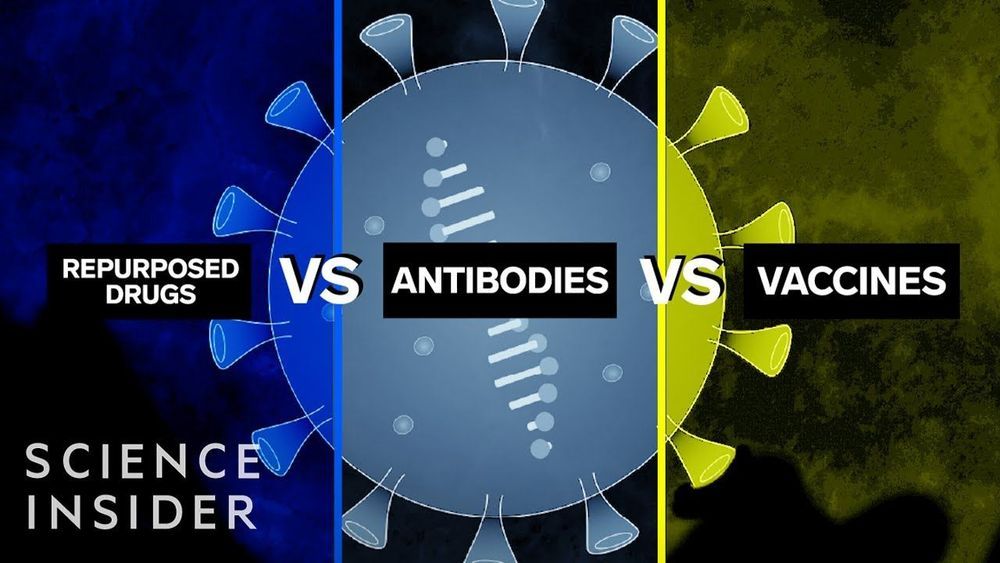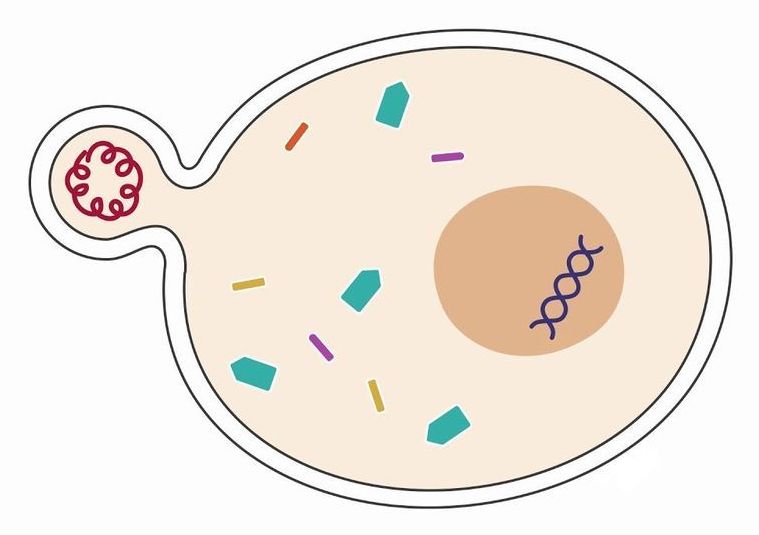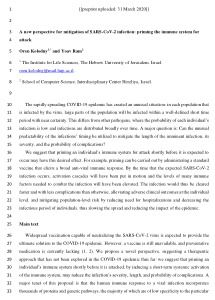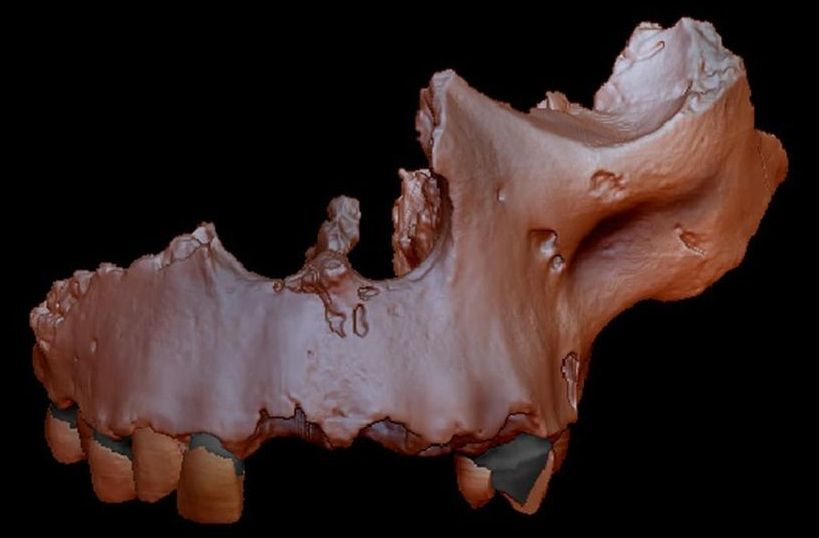Lipid nanoparticles containing genetic drugs can be bioengineered to tune their biodistribution and induce organ-specific gene regulation.
Category: biotech/medical – Page 1786
Coronavirus-stricken British Prime Minister Boris Johnson was rushed to intensive care on Monday — as cases of the disease soared past 1.3 million across the globe.
The news came as the US reached a grim milestone of its own, with the death toll topping 10,000 and the number of cases hitting 347,000.
And it may get worse, yet. New data suggests that the peak of the pandemic — when an alarming 3,130 Americans are predicted to die in a single day — is still 10 days away.
I met with an accident in 1997.I suffered a spinal cord injury in that accident.3 months go I took stem cell therapy at Neurogen. In these 3 months I feel I have improved a lot more than before. My legs feel loose. My back also feels free. While walking my legs used to crossover each other, that has now reduced. All the muscles of my legs were very tight.
before now it has reduced. Climbing up and down the stairs is also easier than earlier.
I can also move my toes know. Earlier while walking my legs used to cross over each other, now that has reduced and I can walk much better. From lying down I can get up much easily and I can do it on my own now. Earlier I used to do bed rolling as an exercise which is much easier now. I get up from bed very easily now, back seems.
less tight and I can do the movements freely. I can roll, turn and crawl in the bed freely, than before. I can now shift forward and backward in the bed easily and on my own. Earlier while standing and walking the heel of my foot used to lift off the ground, now it touches the ground. I can balance myself on both legs now. I feel I have a good grip while walking, bearing more weight on both the legs. While climbing stairs I can lift my leg up on my own and climb. I can now stand on my own without any support. Earlier both these muscles were very tight Now they have become loose helping me Walk better.
Earlier I could not do this exercise at all But now I am able to lift my back easily
Improvement
Adductor spasticity has decreased.
Earlier he had a scissoring gait. Now
he is able to walk normally.
Hip control is better.
A COVID-19 vaccine could be produced in record time, but that still won’t be fast enough to to solve our current pandemic. What could: treatments. Developers all over the world are working on repurposing old drugs and creating new ones to treat COVID-19, and some could be ready by April this year. The reason treatments might be available so much sooner than a vaccine has to do with safety. We spoke with a couple researchers — one developing a treatment and one developing a vaccine — about their timelines.
MORE CORONAVIRUS COVERAGE:
What Coronavirus Symptoms Look Like, Day By Day.
Why A Coronavirus Vaccine Could Be Developed In Record Time.
How Coronavirus Affects People With Diabetes, Cancer, And Other Conditions.
—————————————————–
#Coronavirus #Vaccine #ScienceInsider
Can Rejuvenation Biotech Help Boost Immune Response to Infectious Diseases? Aging of the immune system makes reduces immune response in elderly — 3 main reasons: cell loss (naive t-cells), accumulation of cells we don’t want (death resistant cells), and changes to internal constitution of the cells.
Early stage research by Janko Nikolich-Žugich indicates that the naive T-cells* produced by the thyamus may not work properly because of something going on with the lymph nodes.
Also vaccines don’t really work well in the elderly either because of other parts of the immune system not working so well.
* T-cells as part of the adaptive immune system rely for it’s function on genetic diversity.
Compared to adults, children with the coronavirus are less likely to be hospitalized or show symptoms like a fever, cough or shortness of breath, new U.S. data from the Centers for Disease Control and Prevention show.
Why it matters: Those with less serious illness or who are asymptomatic likely play a large role in transmitting the disease. Social distancing is thus important for all age groups, the CDC stressed.
By the numbers: Among the 149,082 confirmed U.S. cases of COVID-19 that the CDC tracked as of April 2, 1.7% were patients under the age of 18.
Anecdotal evidence suggests that the combination of zinc and hydroxychloroquine may be beneficial for the treatment of Covid-19:
We have been asked again and again — “What else can I do, apart from social distancing, hand hygiene, and so on, to protect myself from COVID-19?” There are additional actions that can be taken.
In this video we examine some details about the virus in Korea and how they are handling things differently. We take a look at the biology of the virus. We examine what happens when our cells are infected with SARS-CoV-2. And finally, we review a study that suggests the possible use of zinc and chloroquine in the fight against SARS-CoV-2.
Circa 2017
The era of merging our minds with technology has begun. Already, we can hack the brain to treat diseases such as Parkinson’s or help paralyzed people move again. But what if you could install a chip in your head that would not only fix any health issues, but could amp up your brainpower — would you remember every word said during a meeting, finish crossword puzzles faster, drive better thanks to enhanced senses, or pick up a new language before your next trip?
That’s the future envisioned by Elon Musk, the Tesla and SpaceX CEO who recently announced Neuralink, a new company dedicated to blending human brains with computers. In Musk’s view, we’ll have to keep pace with ever-smarter artificial intelligence by implanting a “neural lace,” or sci-fi inspired machine interface that will make us smarter.
“Under any rate of advancement in AI, we will be left behind by a lot,” Musk said last year. “The benign situation with ultra-intelligent AI is that we would be so far below in intelligence we’d be like a pet, or a house cat.”
A new perspective
Posted in biotech/medical
The rapidly spreading COVID-19 epidemic has created an unusual situation: in each population that is infected by the virus, large parts of the population will be infected within a well-defined short time period, with near certainty. A major question is thus: Can the unusual predictability of the infections’ timing be utilized to mitigate the imminent infection’s length, severity, and probability of complications?
We suggest that priming the immune system for attack shortly before it is expected to occur, e.g. via a vaccine that elicits a broad anti-viral immune response, may have this desired effect. Early activation of the immune system would allow it to clear the infection faster and with less complications than otherwise. This would alleviate adverse clinical outcomes at the individual level, and mitigate population-level risk by reducing need for hospitalizations and decreasing the infectious period of individuals, thus slowing the epidemic’s spread and reducing its impact.
It’s hard to piece together the full history of human evolution from piles of old bones. But now, scientists have made use of a new method to study proteins in dental enamel of an 800,000-year-old human species, helping place it in the family tree.
Although Homo sapiens is the only human species still alive today, the road to get here is paved with extinct relatives. And untangling how they’re all related to each other is a task that scientists continue to wrestle with. The timeline is usually determined through various dating processes, both on the bones themselves and the sediment layers they’re found in. Relationships between species are then determined from this timeline, and by examining the structures and features of the bones to track the progress of evolution.
For the new study, researchers at the University of Copenhagen have used a new tool called palaeoproteomics to get a more precise picture. This involves sequencing proteins from ancient remains, and it works on samples that are far too old to have intact DNA. In this case, the team applied it to the 800,000-year-old teeth of a mysterious, archaic human species called Homo antecessor.









